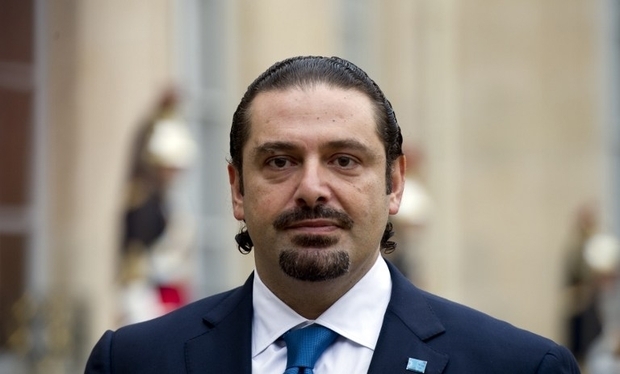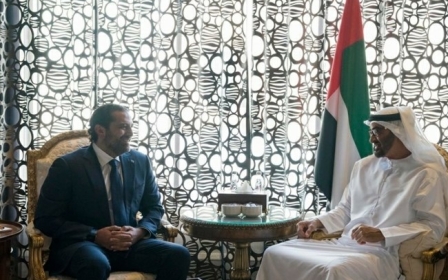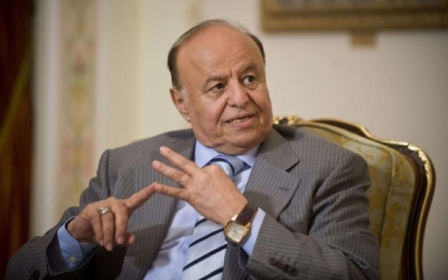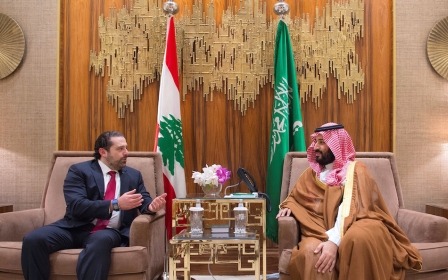Saad Hariri held in Saudi Arabia, says top Lebanese official

Lebanon believes that Saudi Arabia is holding leading Sunni politician Saad al-Hariri and that he was forced to resign as prime minister, a top Lebanese government official told Reuters on Thursday.
Hariri resigned on Saturday in a shock declaration read from Saudi Arabia, pitching Lebanon into deep political crisis and pushing the country back to the forefront of a regional struggle between Saudi Arabia and Iran.
The sudden nature of his resignation has fuelled widespread speculation in Lebanon that the Saudi-allied politician has been caught up in a regional power struggle between Iran and Saudi Arabia and coerced into stepping down.
The official said Hariri was still Lebanon’s prime minister and plans to work with foreign states to secure his return to the country.
“Keeping Hariri with restricted freedom in Riyadh is an attack on Lebanese sovereignty. Our dignity is his dignity. We will work with (foreign) states to return him to Beirut.”
Saudi Arabia and Hariri aides have denied reports that he is under house arrest, but he has put out no statements himself denying his movements are being restricted.
Saudi Arabia says the Iran-backed group Hezbollah had “hijacked” the political system.
In his resignation speech, Hariri attacked Iran and Hezbollah for sowing strife in Arab states and said he feared assassination.
“Lebanon is heading towards asking foreign and Arab states to put pressure on Saudi to release Prime Minister Saad al-Hariri,” said the official, who declined to be identified because the government had yet to declare the initiative.
Saudi influence
The timing of Hariri's sudden and unexpected resignation, which came amid a wave of arrests targeting high-profile Saudi political and business figures seen by some as a move by Saudi Crown Prince Mohammed bin Salman to consolidate his power, has raised concerns about Riyadh's influence in Lebanon amid escalating regional rivalry between Saudi Arabia and Iran.
The uncertainty surrounding Hariri's announcement has left many in Lebanon who spoke with MEE this week concerned that the country will be caught up in fresh regional tensions.
“We have lived through the civil war and had to move to Africa - Sierra Leone," said Fadi Leba’ine, a 59-year-old food preserves salesman in Beirut.
"Now my son, who is 35, has to live through the same struggle I had to face when I was young. I imagine the children of my nephews will also have to live through the same things all over again."
A photo published by the UAE's state-run Emirates News Agency (WAM) on Tuesday showed Hariri meeting Bin Zayed, a key ally of Mohammad bin Salman, in what appeared to be the same suit and tie that he wore in photographs of his meeting with Saudi King Salman bin Abdulaziz al-Saud on Monday and to deliver his resignation speech on Saturday which was broadcast live by Saudi Arabia's al-Arabiya television channel.
Hariri thanked the Emirati leadership for their support for Lebanon and the two men discussed the challenges that Lebanon faced and the "regional interventions" that were obstacles to the prosperity and peace of the country, WAM reported.
Lebanese President Michel Aoun has said that he will not accept Hariri's resignation until he returns to Beirut and explains the circumstances in which he had made his decision to quit.
The newspaper also said that Egyptian President Abdel Fattah el-Sisi had told Lebanese Parliamentary Speaker Nabih Berri that he feared Hariri may be under house arrest.
New MEE newsletter: Jerusalem Dispatch
Sign up to get the latest insights and analysis on Israel-Palestine, alongside Turkey Unpacked and other MEE newsletters
Middle East Eye delivers independent and unrivalled coverage and analysis of the Middle East, North Africa and beyond. To learn more about republishing this content and the associated fees, please fill out this form. More about MEE can be found here.




